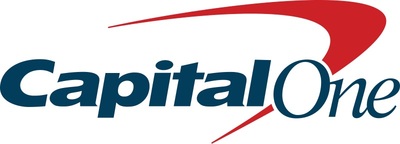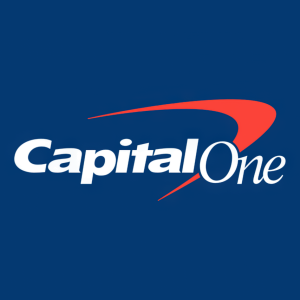New Research: Online and Mobile Knowledge Are No Longer Barriers to Banking for Majority of Americans, Including Most Seniors
Despite high rates of digital literacy,
Consumers of all ages continue to struggle with financial literacy, the report shows, with more than
"BANKING IS DIGITAL – from paying bills to checking bank balances, people are managing their finances online, making digital financial literacy skills critical for consumers," said Shena Ashley, President, Capital One Insights Center and Vice President, Community Impact and Investment. "Even though an overwhelming majority of Americans are regularly banking online, too many still lack basic financial knowledge and skills. Capital One is committed to working with stakeholders in the public and private sector to identify and advance solutions to address knowledge gaps."
The Capital One Insights Center surveyed 3,000 consumers across the
- Nearly
86% of Americans know how to protect themselves and their personal information online. However, more than40% of consumers lack basic financial knowledge, like how to manage debt or build credit. Previous research has shown that financial literacy improves financial well-being. - Despite high digital literacy scores, lower financial literacy means only
55% of consumers are digitally financially literate. These digitally financially literate consumers understand a combination of basic financial knowledge and can protect themselves online from phishing attacks and other financial scams. - Digital financial literacy increases with age. Older consumers ranked higher in both digital and financial literacy. Of the 65+ population,
74% rank highly on both digital and financial literacy, nearly three times higher than the 18-24 year old population. - Consumers prefer to bank online. Even among consumers who scored low on both digital and financial literacy,
45% said they prefer managing their finances through a mobile app,19% prefer using a website, and only9% prefer going to a bank branch. - Consumers are banking online regularly.
70% ofU.S. households report being enrolled in digital banking for some or all of their accounts. Among consumers who are enrolled in digital banking,95% said they bank online "often" or "occasionally."
The report comes at a time when many states have moved to mandate that high school students take financial literacy classes before graduation. However, most curricula do not include courses for financial education that focuses on online and mobile money management. The report's findings suggest it is critical to invest in digital financial education to help young adults navigate the digital world. Capital One partners with Khan Academy, a leader in online learning, to offer free online financial literacy courses for all ages. Online financial education–or a combination of digital and financial literacy training–might attract and retain more learners.
"Financial literacy is key to owning our financial lives and futures," said Adam Davis, Vice President, Financial Health, Inclusion, and Liquidity at Capital One. "But consumers increasingly say they prefer managing their finances online, so the question we should be asking is how can we help them master financial literacy in a digital environment."
Click here to read the full study.
About Capital One Insights Center
The Center combines Capital One research and partnerships to produce insights that advance Capital One's Impact Initiative. As a platform for data and dialogue, the Center strives to help changemakers create an inclusive society, build thriving communities and develop financial tools that enrich lives. The Center draws on Capital One's deep market expertise and legacy of revolutionizing the credit system through the application of data, information and technology. Learn more about the Insights Center here.
Methodology
Capital One's Digital Financial Literacy Index is a nationally representative, self-reported, anonymous survey of 3,000 randomly selected adults in the US. Participants were surveyed between August and September 2023.
All data in this report is from self-reported, anonymous research of
Respondents were asked a series of questions about financial literacy, digital literacy and digital banking behaviors. To measure financial literacy and digital literacy, the Insights Center used well-tested and validated questions pulled from other reputable studies.
![]() View original content to download multimedia:https://www.prnewswire.com/news-releases/new-research-online-and-mobile-knowledge-are-no-longer-barriers-to-banking-for-majority-of-americans-including-most-seniors-302055450.html
View original content to download multimedia:https://www.prnewswire.com/news-releases/new-research-online-and-mobile-knowledge-are-no-longer-barriers-to-banking-for-majority-of-americans-including-most-seniors-302055450.html
SOURCE Capital One Financial Corporation








